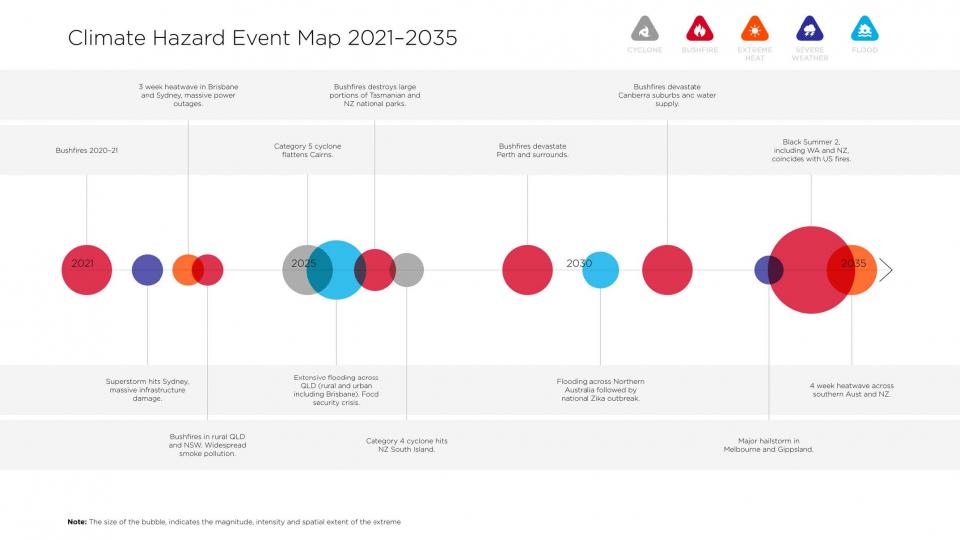
PUBLICATIONS
Published works

Transformative scenarios in a climate challenged world - emergency management sector case studies as worked examples
| Title | Transformative scenarios in a climate challenged world - emergency management sector case studies as worked examples |
| Publication Type | Report |
| Year of Publication | 2021 |
| Authors | Partners, R |
| Document Number | 710 |
| Date Published | 10/2021 |
| Institution | Bushfire and Natural Hazards CRC |
| City | Melbourne |
| Report Number | 710 |
| Keywords | Climate change, Emergency management, governance, Planning, Scenarios |
| Abstract | During 2020 and 2021, under the stewardship of BNHCRC and AFAC and led by Reos Partners and RMIT University, a select group of leaders and professionals from across the Australia and New Zealand emergency management sector (EMS) and related organisations worked together to better understand the driving forces in the world that interact to shape the future in unpredictable and volatile ways; ways that humans cannot reliably forecast or predict. Using these driving forces, the team constructed a set of plausible futures that invite the EMS and the organisations within it to examine their current thinking about the future and challenge their existing assumptions. These scenarios explore what might happen over 2021-2035 in a climate-challenged world and how these futures might plausibly come about. The purpose of Emergency management sector case studies as worked examples is to provide a ‘light’ version of a wind-tunneling process using four case examples from the perspective of different Emergency Service agency types:
Abridged versions of four strategies or plans have been selected as ‘cases’ to illustrate the application of the wind-tunnelling process described in Transformative scenarios in a climate-challenged world: a guide for using scenarios in the emergency management sector. The cases are: Case 1 – Urban Operations: State Emergency Response Plan Extreme Heat Sub-Plan (2017) Case 2 – Rural Operations: Barwon South West Bushfire Management Strategy (2020) Case 3 – Land Management: City of Ipswich Floodplain Management Strategy (2019) Case 4 – Emergency Services: NZ Risk Reduction Strategy (2019-29) The Case Studies draw on the experience of the sector-wide scenario team in developing the scenarios and have been designed to be used in conjunction with the other documents in the Transformative scenarios in a climate-challenged world: workbook, including:
You will also need to access Transformative scenarios in a climate-challenged world: research and methodology, which includes:
All of these documents can be found here. Note that wind-tunnelling is a rigorous process requiring significant time and resources, and that these Case Studies are a ‘light’ version of a wind-tunnelling process developed for illustrative purposes only in order to show ways in which the worked examples may be tested and improved. Note also that not every step in each worked example of the case studies has been fully completed. Parts have been deliberately left blank with an invitation for the reader to engage and complete the exercise. Again, what’s provided is by way of example is for illustrative purposes only. Finally, none of the results of wind-tunnelling provided here should be seen as a recommendation for any improvement to any of the strategies selected as EMS Case Studies. |
Published Works


